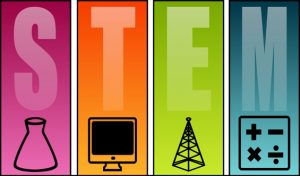 Subscribe
Subscribe- Login
-
/
Sign Up
- US Black Engineer
- >>
- Articles
- >>
- HBCU Technet
- >>
- Why STEM matters to the Department of Defense
|
Getting your Trinity Audio player ready...
|
 Eighty percent of future jobs will require science, technology, engineering, and math (STEM) skills. Some experts say nearly all jobs incorporate STEM knowledge.
Eighty percent of future jobs will require science, technology, engineering, and math (STEM) skills. Some experts say nearly all jobs incorporate STEM knowledge.
It comes as no surprise that the United States military recognizes the importance of STEM and is a supporter of programs that foster learning and growth in these disciplines.
“The Department of Defense has long supported STEM education and outreach activities throughout the nation,” states the defense department’s STEM website.
“The Army, Navy, Air Force, and other DoD agencies (i.e. – Missile Defense Agency, Defense Threat Reduction Agency, etc.) each bring unique skills and activities to the DoD STEM enterprise. Whether it’s through an immersive STEM educator program at the United States Naval Academy or a hands-on STEM summer camp at an Army laboratory, DoD services and agencies share a common goal: build a STEM-literate culture, inspire the next generation to the wonders of STEM, and attract the best and brightest to our elite workforce.”
Rodney C. Adkins, president of 3RAM Group LLC and the 2007 Black Engineer of the Year, wrote an article in Forbes, published in 2012, titled “America Desperately Needs More STEM Students. Here’s How to Get Them.”
In it, he explained:
“First, we need to increase the size of the STEM education pipeline by maintaining an enthusiasm for science, technology, engineering and math throughout high school and college,” the Forbes article states.
“Our youngest students show an interest in STEM subjects, but the President’s Council of Advisors on Science and Technology has concluded that roughly 40% of college students planning to major in engineering and science end up switching to other subjects. How important is it to increase the retention rate of STEM majors in U.S. colleges? STEM-related degrees represent only about a third of all the bachelor’s degrees awarded in the U.S. In Japan, China and Singapore, that ratio is more than one in two.”
Officials with DoD STEM make it clear that they seek to “attract, inspire, and develop STEM talent and advance the current DoD STEM workforce to meet future defense technological challenges.”
“The Department of Defense recognizes the importance of STEM talent in transforming new ideas into innovative solutions,” said Adam Stump, a Defense Department spokesman. “Our hope is that these programs inspire students of all ages and backgrounds to become the next generation of scientists and engineers who will ensure the nation’s technical superiority in an ever more complex world.”
In fact, the DoD STEM website (dodstem.us) lists more than 50 STEM programs (courses, scholarships, internships, etc.) for elementary through college students, including the following:
• Advanced Course in Cyber Security Bootcamp • The College Qualified Leaders (CQL) program matches practicing DoD scientists with talented college students to create a direct mentor-student relationship, providing participants with training that is unparalleled at most colleges. CQL students receive firsthand research experience and exposure to DoD laboratories.
• The High School Apprenticeship Program provides high school juniors and seniors with an authentic science and engineering research experience alongside university researchers sponsored by the Army. Students are expected to develop skills in critical science and engineering research areas in a university lab setting to prepare them for the next steps of their educational and professional career.
• Junior Solar Sprint is a free educational program for fifth- through eighth-grade students in which they design, build, and race solar-powered cars using hands-on engineering skills and principles of science and math. • The Science and Engineering Apprenticeship Program is an eight-week, paid high school apprenticeship opportunity at one of the nearly 30 Army and Navy laboratories and facilities. Students gain real-world, hands-on experience and research skills while being exposed to DoD science and technology.
• The Summer Intern Program for Science and Technology is a full-time, 12-week summer internship program that is open to college juniors who are concentrating their studies in the disciplines of computer science, computer engineering, electrical engineering, network engineering, software engineering, or telecommunications.
• The Air Force Young Investigator Research Program supports scientists and engineers who have received Ph.D. or equivalent degrees in the last five years and show exceptional ability and promise for conducting basic research. • DoD programs offer career opportunities as well as the need for more STEM-skilled individuals:
• Eighty-one percent of the programs’ Smart Scholars were employed after service commitments.
• Forty-six percent of the engineers and scientists employed by the federal government work for the Department of Defense.


